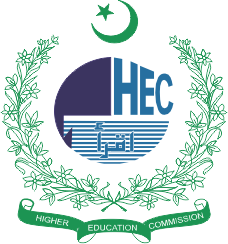Post COVID-19 Analysis of Conservatism Effect Bias on Individual Investors of the KMI-30 Index at Pakistan Stock Exchange
DOI:
https://doi.org/10.63062/trt/2k23a.23207Keywords:
COVID-19, Conservatism, KMI-30 Index, Pakistan, Stock ExchangeAbstract
This study examines how conservative bias affected Pakistan Stock Exchange KMI-30 index investors after COVID-19. The main goal is to assess conservative bias in Pakistani stock market decision-making. Data from 162 respondents was carefully collected and analyzed using logistic regression, association testing, descriptive statistics, and correlation analysis. The study illuminates the impact of conservative bias on Pakistan's stock market investment selections. Both male and female investors react similarly to conservative bias, indicating that gender does not greatly change its effects. Conservative bias is more common in highly educated people, especially those with graduate and doctoral degrees. Younger investors (18-25) are less susceptible than 26-30-year-olds. Investors with one to three years of experience are more conservative, while those with less than a year or over three years are less vulnerable. Marital status barely affects financial prejudice. These findings emphasize the importance of demographic and experience characteristics in investment strategies and financial advice. The study underlines that good investment requires understanding psychological aspects affecting investor behavior, not just numbers. Understanding the human aspect in investment decision-making can help financial advisers, and regulators tailor advice and regulations to the varying needs and vulnerabilities of different investor groups, creating a more informed and resilient investing community.
References
Adamson, F. B. (2006). Crossing Borders: International Migration and National Security. International Security, 31(1), 165–199. https://doi.org/10.1162/isec.2006.31.1.165
Ahmad, M. A. (2017). Snooping into the Belt &Road Initiative: A Comparative Study of Gwadar with Chabahar Port. Journal of the Punjab University Historical Society, 30(2), 87–98.
Ahmed, K. (2011). Sectarian War: Pakistan’s Sunni-Shia Violence and its Links to the Middle East (pp. 213–270). Oxford University Press.
Alam, S. (2004). Iran‐Pakistan relations: Political and strategic dimensions. Strategic Analysis, 28(4), 526–545. https://doi.org/10.1080/09700160408450157
Andreas, P. (2003). Perspective: border security in the age of globalization: how can we protect ourselves without losing the benefits of openness? Karachi: Oxford University Press.
Awan, M. A. (2018). Pakistan-Iran Geo-Political Environment and the Discourse of Relations (1947-2017): A Reappraisal. Pakistan Journal of History and Culture, 39(1), 111-132. http://www.nihcr.edu.pk/Latest_English_Journal/39-1%202018/6.%20Pak%20Iran%20geo-political,%20maqbool%20ahmad.pdf
Burke, S. M., & Ziring, L. (2017). Pakistan’s Foreign Policy: An Historical Analysis. Oxford University Press, USA.
Buzan, B., & Waver, O. (2003). Regions and Powers: The Structure of International Security. Cambridge University Press. https://doi.org/10.1017/cbo9780511491252
Cornell, S. (2003). Regional Politics in Central Asia: the Changing Roles of Iran, Turkey, Pakistan and China. New Delhi: SAPRA Foundation.
Imtiaz, A. (2019). Pakistan-Iran relations: Economic and political dimensions. Karachi: Oxford University Press.
Kux, D. (2001). The United States and Pakistan, 1947-2000: disenchanted allies. Woodrow Wilson Center Press; Baltimore; London.
Pattanayak, S., & Fainboim, I. (2011). Treasury Single Account: An Essential Tool for Government Cash Management. International Monetary Fund. https://www.imf.org/external/pubs/ft/tnm/2011/tnm1104.pdf
Shah, M. N. (2014). Evolution of Sectarianism in Pakistan: A Threat to the State and Society. South Asian Studies, 29(2), 443.
Shaikh, F., & Price, G. (2001). Price, Pakistan: Regional Rivalries and local impacts. London: Woodrow WilsonPress.





